Aid agencies call for water for all
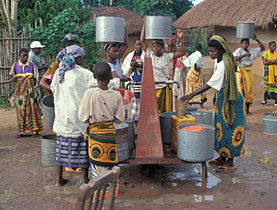
To mark Saturday's United Nations World Water Day, Swiss non-governmental organisations (NGOs) have been highlighting the lack of access to water.
They say that its sustainability can only be guaranteed in the long term if both developing and industrialised countries take more action.
Water causes thousands of deaths around the world each day through pollution, or because it’s too expensive and because there is simply not enough of it.
According to the NGO Helvetas, one person in six has no access to clean drinking water and a third of the world’s population have no basic sanitation facilities. Its Water Day campaign calls for water and sanitation for everyone around the world.
“Without this infrastructure and drinking water, it’s utopian to talk about development,” says Helvetas secretary-general, Melchior Lengsfeld.
Global water consumption is said to have risen more than double the rate compared with the population growth in the last century alone.
Yet NGOs, such as Alliance Sud, say water scarcity is not being taken seriously enough. The Swiss alliance of development organisations decries the fact private companies have also become involved in water distribution.
“We do not agree at all with the principle of privatisation. Water should remain a common good managed by the local community,” Alliance Sud’s Lavinia Sommaruga told swissinfo.
Differing positions
However, this position does not tally with that taken by some of the big economic institutions working in aid development – the World Bank or the International Monetary Funds in particular. They favour the liberalisation of water supply systems.
The move towards private companies is – partly at least – shared by the Swiss State Secretariat for Economic Affairs (Seco) as well as the Swiss Agency for Development and Cooperation (SDC).
Yet, experiences in countries such as Argentina, Bolivia, Indonesia and Tanzania, show that problems related to water are not normally solved by entrusting supply to the private sector, according to NGOs.
They say a different approach is needed. “There should be an international convention recognising access to drinking water as a fundamental right,” said Sommaruga.
This right is not explicitly mentioned in the UN’s Declaration of Human Rights and is therefore not legally binding.
For World Water Day, which is this year falls in the International Year of Sanitation, Alliance Sud is therefore calling for a greater and more concrete effort on the part of decision-making bodies, including the Swiss authorities.
Global responsibility
NGOs maintain that it is not just a task for governments and international organisations. “It’s a world responsibility issue,” says Sommaruga.
“Industrialised counties should first of all stop wasting water, particularly in industrial and agricultural processes.”
Good news in this domain comes from the Swiss Gas and Water Industry Association which has reported that the consumption of drinking water in Switzerland is falling constantly.
In 1981 it was 500 litres a day per inhabitant, now it is 355 litres, which the association says is due to less waste and more ecological awareness.
Developing countries need to be able to manage their resources efficiently and reliably, say aid agencies. They have called for targeted action within communities, rather than huge investments.
Helvetas spokeswoman Claire Fisher says it is not done with building wells in villages.
“It is fundamentally important to integrate the population in the drawing up of these projects, and in the building and maintenance of the resulting infrastructure,” she said.
swissinfo, based on an article in Italian by Luigi Jorio
International World Water Day is an initiative by the 1992 UN Conference on Environment and Development.
The UN General Assembly designated March 22 of each year as the World Day for Water.
Nearly 40% of the world population have no access to basic sanitation facilities, according to UN organisations.
Experts say spending $10 billion (SFr10 billion) a year would enable the world to reach a 2015 goal of improved sanitation in developing countries.
They say money spent on improving sanitation would lead to higher economic growth or lower hospital bills.

In compliance with the JTI standards
More: SWI swissinfo.ch certified by the Journalism Trust Initiative
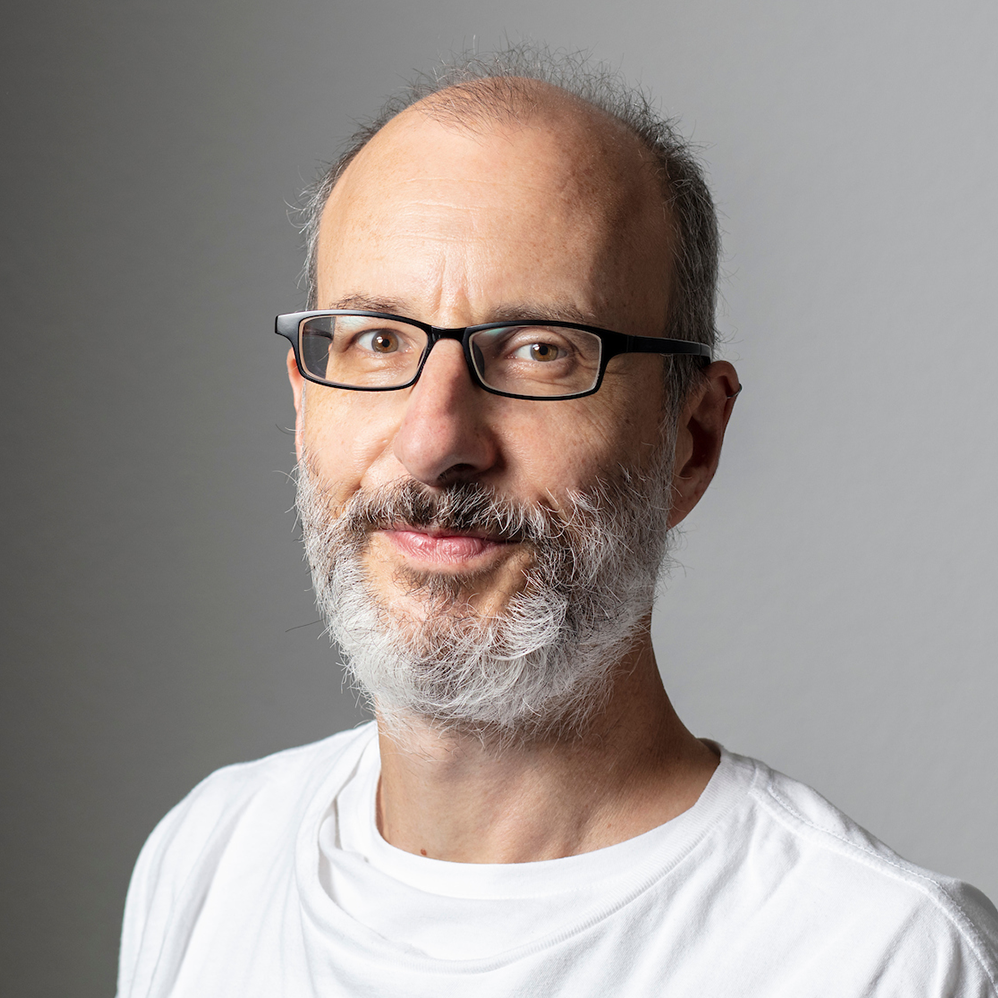
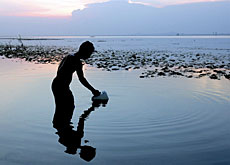
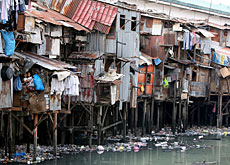
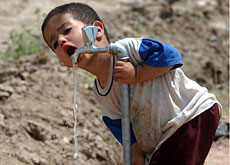
You can find an overview of ongoing debates with our journalists here. Please join us!
If you want to start a conversation about a topic raised in this article or want to report factual errors, email us at english@swissinfo.ch.